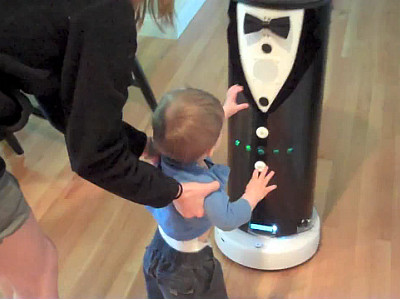'Project Alias' which makes it possible to launch 'Element Parasitic' on Amazon Echo or Google Home and in whatever language you like

When activating smart speakers such as "Alexa", "OK, Google", "Hey, Siri" and so forth, when giving instructions to assistant AI, you need to first speak the specified keyword called "wake word". A device that allows you to change this wake word simply by putting the device on top and not sniffing smart speakers without modifying the main body of smart speakers is being developed with " Project Alias " .
Bjørn Karmann> project_alias
http://bjoernkarmann.dk/project_alias
Assistant AI developed by each company is installed in the smart speaker, and it carries out various processing by instructing by voice with wake word. For example, Amazon Echo equipped with Amazon Alexa is "Alexa", Google Home with Google Assistant is "OK, Google", and the words to call for audio AI are wake words.
Speech AI installed on smart speakers is designed to learn the owner's voice and intonation and increase the accuracy of speech recognition. However, because wake words are basically immutable, owners can not call smart speakers with their own name.
"Project Alias" started by Mr. Bjørn Karmann is a development project of "Alias" device that can change wake words into arbitrary words simply by placing it on Amazon Echo or Google Home. "Alias" means "alias / pseudonym" in Japanese.
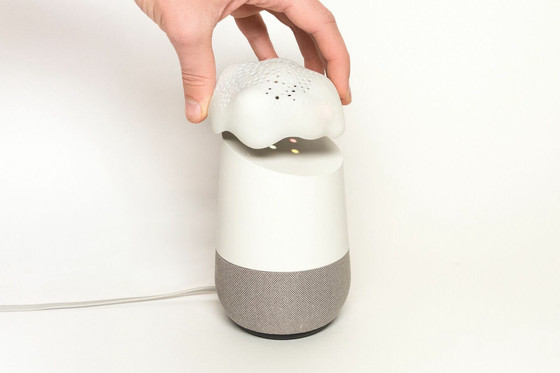
Alias is distinctive in its appearance, and when it is put on Amazon Echo or Google Home, it looks as if the upper part of the smart speaker was broken by a fungus-like thing and melted. According to developer Karmann, he seems to be developing Alias by imagining a "parasite" attached to a smart speaker, like the Cordyceps sinensis parasitizing on a caterpillar larva.
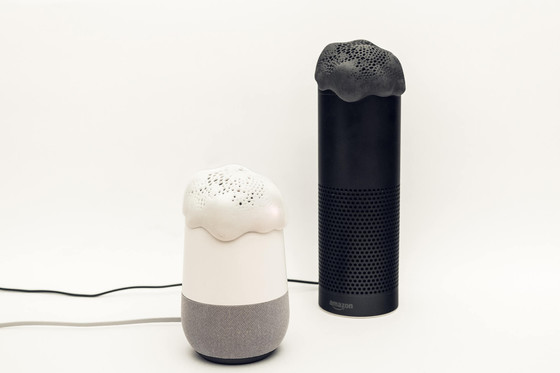
Alias is made by combining 3D printed outer shell and microphone array , Raspberry Pi 3 Model A + and Exp Board's ReSpeaker 2-Mics Pi HAT , two 16 mm small speakers.
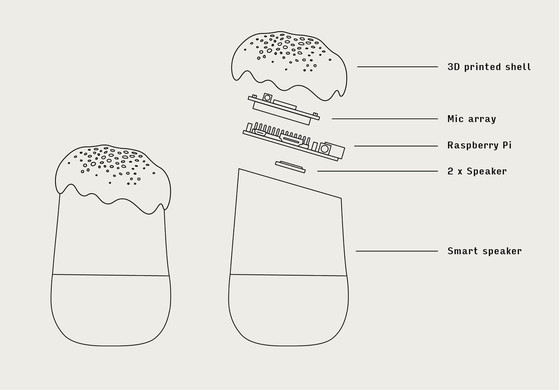
The two speakers built into Alias will always play a white noise at a level that is not heard by humans and interfere with the microphone of the smart speaker. Due to this interference, even if the owner calls "Alexa" "OK, Google" it will stop responding. However, when the owner hears the keyword specified by Alias, he plays back the original wake word from the speaker with a small volume and at the same time stops the reproduction of the white noise. This allows the owner to operate smart speakers with any keyword as a wake word.
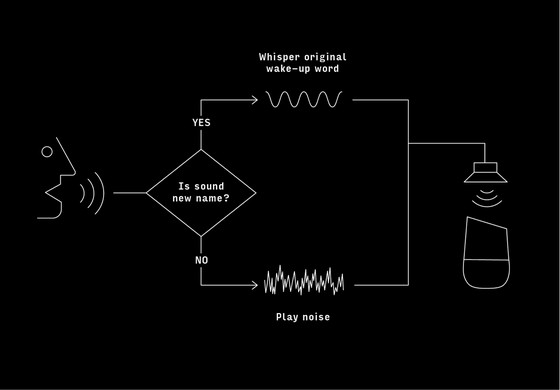
To specify any keywords in Alias, you need to train Alias. When using a smartphone application to speak a new name several times, Alias learns that keyword, the learning situation is visualized and displayed on the screen of the smartphone. In addition, if properly pronounced, the keywords to be registered do not matter in any language.
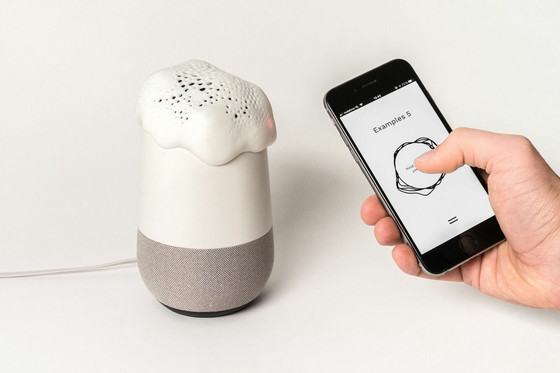
You can see how to call on smart speakers that actually made Alias parasitic on your favorite name from around 35 seconds of the following movie. Smart speakers will respond properly when you call with "Alias" name such as "Doris" "Marvin" " Apt " in advance. However, due to the specification on the microphone, the reaction to the voice is slightly dull impression.
Project Alias - How to rename your home assistent and stay private - YouTube
In addition, since smart speakers such as Amazon Echo and Google Home send machinery learning by sending input voice data to the cloud, cases such as sending arbitrarily recorded data to a third party occurred , Privacy issues are also discussed. Since Alias always flows white noise and interferes with the microphone of the smart speaker, it can also prevent 'the living sound is recorded and sent before I knew something else.'
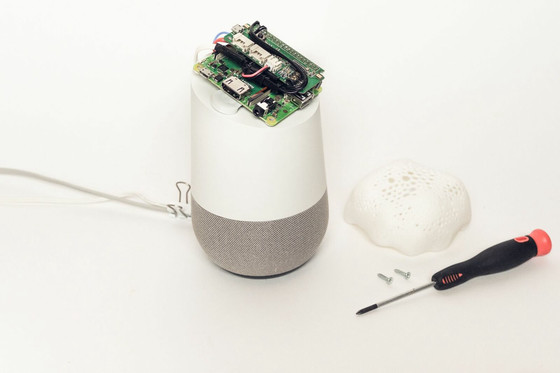
Alias' shell and speaker holder 3D model and wake word voice of each smart speaker are Instructables , open source software controlling Alias is released on GitHub .
Related Posts:







